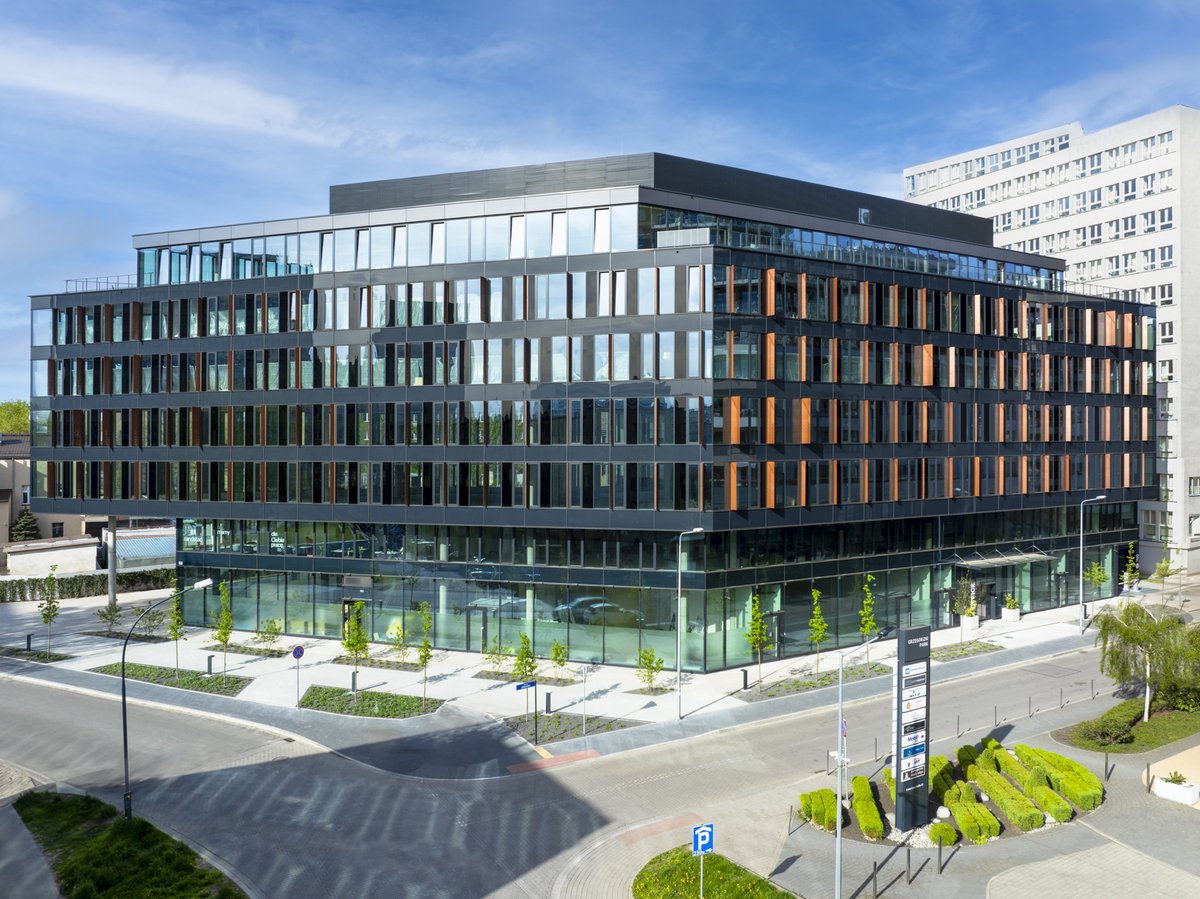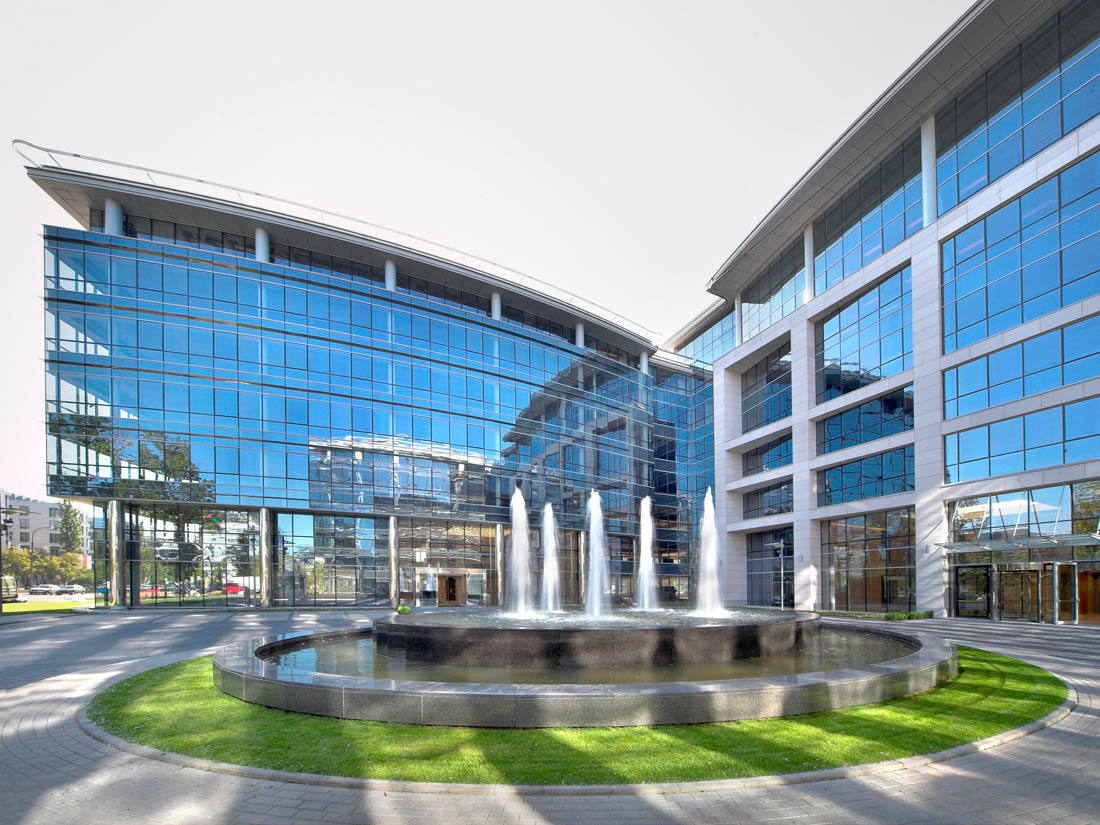There is more than 65,000 sqm of office stock under construction in Poznań, the capital of the Greater Poland region. Another 60,000 sqm is in the pipeline scheduled for completion by 2026. In addition, the Poznań office market is expected to see further growth of serviced offices, says Joanna Bartoszewicz, Advisor, Office Tenant Representation, Newmark Polska.
With over 661,000 sqm of office stock, Poznań is the sixth-largest office market in Poland, after Warsaw, Krakow, Wrocław, Tricity and Katowice. It is usually ranked in the top three most liveable cities and frequently named the best place to live.
“Poznań is not only a good city to live in but also to do business,” says Joanna Bartoszewicz. “It is a compact and well-connected city. For decades it has grown organically around the Poznań International Fair, which in the post-war years became the region’s window on Western Europe. Its inhabitants have always seen potential in learning foreign languages and continue to draw on their language proficiencies. Poznań has a large pool of highly skilled employees with a command of English, German, French and other Western languages, which attracts companies from the shared services sector to the city.” With 22 tertiary education institutions and a student population of 113,873, Poznań is the fourth-largest academic centre in Poland. It is also the birthplace of Żabka and Allegro – some of the best-known brands in the country.
A podium place for new supply
32,400 sqm of modern office space was delivered to the Poznań market in the first three quarters of 2023. This figure represented the third-highest result for regional cities in Poland. The largest completion was Building E (25,100 sqm), the next phase of the Nowy Rynek complex, a mixed-use project developed by Skanska within a few minutes’ walk from the Old Town. The multi-phase project will ultimately comprise five buildings with a total usable area of around 100,000 sqm. The buildings have a shared patio/square – a public space for meetings, recreation and entertainment.
“Nearly 40 percent of modern office stock is concentrated in the centre of Poznań, delineated by Solna, Małe Garbary, Matyi, Królowej Jadwigi, and Roosevelta streets and the Warta River in the east. There are also office buildings in the vicinity of Lake Malta, Grunwaldzka Street (Pixel complex) and the western part of the city, in Bułgarska Street with Business Garden Poznań (87,000 sqm), the largest office park in Poznań,” says Joanna Bartoszewicz.
Other office buildings that remain popular with tenants include Andersia Business Centre, Bałtyk, Malta Office Park, Maraton, and the recently refurbished Globis and Okrąglak, say advisors from Newmark Polska.
Attractive office buildings will sign up tenants
At the end of the third quarter, Poznań’s vacancy rate stood at 13.2 percent, equating to more than 87,000 sqm of unoccupied office space. Joanna Bartoszewicz, however, assures that it is a healthy level and one of the lowest for regional cities. “Much of that space is available in office buildings delivered onto the market in the past five years – most are attractive and will soon sign up tenants. Some vacant space is also in buildings that have been unable to find tenants for a long time and can be classified as structural vacancies. Fortunately, they represent a minority but will also be the hardest to let as companies are targeting new office buildings with advanced technological and environmental solutions,” explains Joanna Bartoszewicz.
According to data from Newmark Polska, over 50 percent of vacant space in the city is in office buildings completed in 2019 (nearly 21 percent, 18,200 sqm), 2020 (16.5 percent, 14,300 sqm) and the most recent completions in 2023 (over 13 percent, 11,400 sqm).
Leading occupier sectors include manufacturing, IT, healthcare and shared services centres
Office leasing activity totalled 49,800 sqm in the first three quarters of the year. The most active tenants were from such sectors as IT, manufacturing, shared services and healthcare, according to data from Newmark Polska. The largest new leases were signed by the National Health Fund (4,900 sqm in the Malta Office Park), Softswiss (2,000 sqm in Nowy Rynek), Atotech (1,700 sqm in Business Garden Poznań) and LyondellBasell (1,700 sqm in Nowy Rynek).
“Renegotiations accounted for 33 percent of all the leases made in Poznań in the first three quarters of 2023, with the highest percentage (44 percent) recorded in the third quarter, in which APServices and Majorel renewed large leases for 3,160 sqm each in Maraton,” says Joanna Bartoszewicz.
Planning offices on a grand scale
With the real estate market in wait-and-see mode, new construction activity has slowed. There is just over 65,000 sqm of office space under construction in the capital city of Greater Poland, the largest new project being AND2 (former Andersia Silver) in Andersa Square, opposite the Stary Browar complex. At full build-out, it will be the tallest building in the city at 116 metres in height and will house a hotel and service outlets in addition to providing office accommodation.
Joanna Bartoszewicz notes that more than 60,000 sqm of modern office space is at the planning stage and scheduled for delivery in 2025-2027. “The most interesting projects in the pipeline include office space in Stara Rzeźnia, a multifunctional complex in the city centre. Another notable development with an expected significant impact on the growth of Poznań will be Cavalia, a multiphase project at the site of former military barracks and a stable that will be revitalised and combined with new buildings. The project will provide office and service space, as well as apartments,” says the expert from Newmark Polska.
Coworking space is needed now
In Poznań, just as in other regional cities, tenants are seeking to optimize office space, say advisors of Newmark Polska. “This trend is confirmed by the enquiries we receive from tenants every day. They are increasingly asking about smaller offices than the ones they occupy now. They are also looking for energy and environmentally efficient buildings and want to know the truth about utility charges,” comments Joanna Bartoszewicz.
The expert also notes another direction in which the Poznań office market is likely to develop. “Clients are increasingly enquiring about flexible offices. When it comes to leasing space, they also expect a building to provide serviced offices which, if necessary, they could use to expand, for short-term projects or to hold a larger event or meeting. However, the choice of flexible offices in Poznań is limited. In addition to smaller local firms, there are only two large flex operators here: Business Link and Regus, which have only three locations in the city. Meanwhile, the potential for the growth of coworking and serviced offices in Poznań is huge. Fortunately, flex office operators are eyeing the capital of the Greater Poland region closely and thinking of expanding in the city,” concludes Joanna Bartoszewicz.







